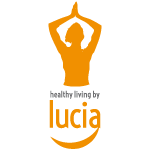Will Your Bones Support You Later in Life?
Bone Health is a Life-Long Process, yes! It really is!
Supplying your bones with the proper nutrients throughout life is essential to the quality of your life and the health of your bones.
Childhood and adolescence
You can make the most impact on your bone health during this stage of life. Approximately 90% of bone is formed by age 17. By making variations in nutrition now, you can improve your peak bone mass. Such a difference could potentially contribute to more than a 50% decrease to the hip fracture rate later in your life.
Pregnancy and Lactation
If mom’s nutrient intake is insufficient, her baby will draw nutrients from her bones. It is crucial that pregnant and lactating women supply their bodies with essential bone-building nutrients; otherwise they can put themselves at risk.
Mid-life (30s-50s
Since your body reaches peak bone mass during your late twenties, you must focus on maintaining it. To keep your bone structure strong, your body is constantly breaking down old bone and building new bone. It is absolutely critical to feed your body the nutrients it needs to complete this process.
Late life (50+)
Your calcium needs become greater as your ability to absorb calcium decreases. Again, one of the best things you can do for yourself is to supply your body with the nutritional factors that support bone health.
Unfortunately our bones become weaker as we age, they are less able to support us, especially if we haven’t supplied our bones with the proper nutrients throughout our life.
I will never stop recommending you support your bones with healthy nutrition now, so they can support your later in life.
Let’s now look at the Nutrients You Need for Optimal Bone Health. It’s important to feed your body the nutritional factors that support bone health. So what nutrients do you need? For most people, calcium and vitamin D are the first two nutrients that come to mind. You need to be sure you are getting enough calcium and vitamin D each day. Your body also needs other nutrients like vitamins A, C, and K, magnesium, phosphorus, manganese, amino acids, and enzymes for building bone. It’s very important you understand bone is not made only of calcium, rather is it is made also with vitamins, minerals, proteins and enzymes. You need all of these nutrients to keep your bones strong.
For example Vitamin D is important in moving the ionized calcium from your intestinal tract into the blood. Meaning it’s crucial for calcium absorption. Vitamin K is very important in moving calcium from the blood into the bone. Vitamin K is found in dark green leafy vegetables like kale and Brussels sprouts. Vitamin C is crucial for optimal collagen (bone protein) formation. Together calcium and collagen form a durable and flexible living tissue called bone. Then there are natural bone proteins and other organic factorsthat naturally occur in bone and are important for optimal bone health.
On the market the focus is only put on Calcium and Vitamin D, which especially when bought over the counter, are the most un-pure and use-less products. Calcium is not just calcium, it comes in many forms and what you see sold in big jars at your local grocery store is nothing but a calcium that your bones will never absorb and therefore of no benefit to you. Also in these calcium supplements there are plenty of other un-needed ingredients that function as fillers, instead of being accompanied by the vitamins and minerals the calcium needs in order to be absorbed. I will never stop saying that at this point it is much better for you to take nothing than taking those over-the-counter forms of calcium. But because you are reading this blog it means you care about your health and therefore I am going to guide you in your calcium supplement shopping so that you are sure that what you are doing is right. The supplements I give to my patients are all supplements that provide the most absorbable form of calcium and that contain all the other ingredients needed for its optimal absorption which you must not overlook. In addition depending on age and individual physical condition, each person’s nutritional needs differ. It is important to have an evaluation by your health care professional to determine which supplements and diet or exercise modifications are appropriate for you. For this please do not hesitate to ask me, I will be glad to assist you.






